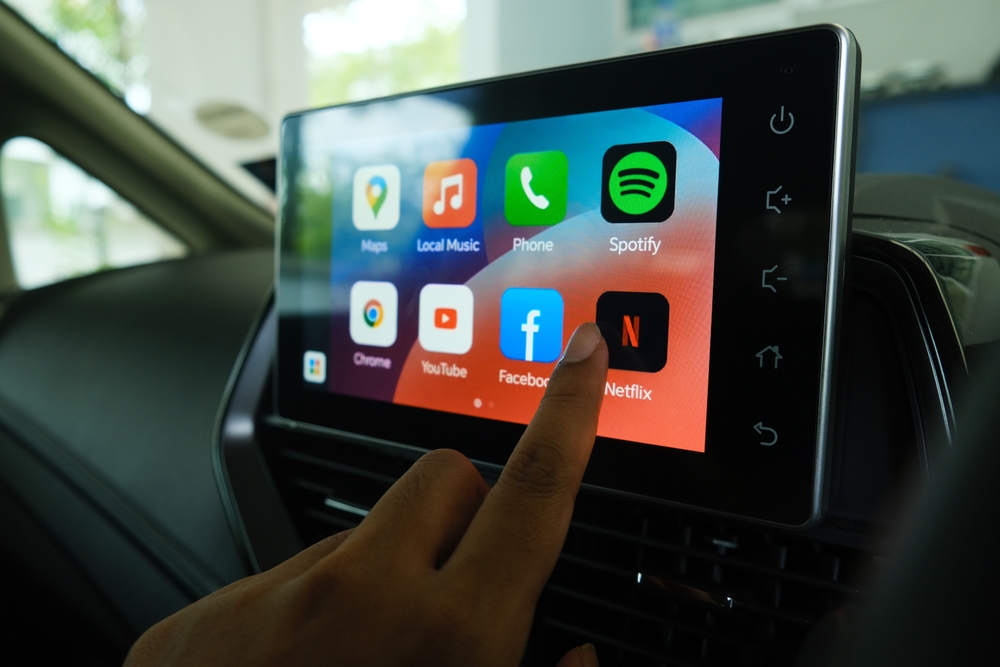Android Auto will use AI to summarize long messages — why that’s a bad idea
Google needs to recognize that it's OK to be disconnected when you're driving

We live in an increasingly connected world, and it seems like no matter what we do or where we go, there’s a way that someone can get in touch with you. Better communication has its perks, especially from a personal safety front, but we should all accept that there are times when being disconnected is a good idea.
I was reminded of this recently when Samsung and Google announced an AI-infused upgrade to Android Auto. The idea behind the upgrade is that AI will summarize incoming messages — specifically longer messages and group chats — in an effort to help reduce distractions. But this particular “upgrade” seems like a step in the wrong direction.
Not seeing a message right away isn’t the end of the world
The idea behind the new Android Auto AI is that you get a condensed version of your messages along with new suggested replies. This way you can spend less time focusing on messages to better concentrate on the road ahead. Naturally, concentration is key when you’re driving, because there are all sorts of hazards you need to be able to contend with.
Group chats are the kind of notifications that can be particularly annoying when you’re driving. Pings and notifications go off, as everyone else talks to each other, shares memes and do whatever else it is they’d normally do in such a chat. It’s a slightly extreme example, but it’s indicative of the problem modern drivers have. There’s just so much coming onto our phones these days, that it’s hard enough to keep up at the best of times. So it can be absolutely detrimental when your concentration needs to be at 100% all the time.
Modern notifications might as well be a living incarnation of FOMO. Your phone chimes and the little notification icon sits there taunting you until you deal with it. The only way it could be more annoying is if the alert kept going every couple of minutes until you dealt with it — a little bit like my washing machine.
It’s amplified by the fact we can have every facet of our lives running through a smartphone. Emails, text messages, social media and all those other things that are vying for your attention — even more so if you have a work account active on your personal device.
But this isn’t a problem that we need AI to solve. In fact there’s no need to put any effort into “solving” this problem of over-exposure to communication. All we really need to do is accept that driving is one of those items when we should be switched off to all but the most essential communications.
We need fewer distractions when driving, not more
The past few years have seen an explosion in smart car features. The likes of Android Auto and Apple CarPlay have played into that, but we’ve also seen a big push from the car makers themselves. These days the screen in a car’s center console is for “infotainment”, blending features designed to inform and entertain.
That’s entertainment beyond radio, music and other kinds of aural entertainment. This entertainment is about games, video streaming, web browsers and all the other things you’d normally use a smartphone for. Naturally there has been criticism that these features are dangerous, because they give the driver an opportunity to be distracted from the road ahead — especially in cars that have dedicated passenger screens that allow this sort of stuff to be active while the car is moving.
There’s validity to those criticisms, and this idea that cars have to become “smartphones on wheels” is not something I’m a fan of. Anything that takes your attention away from the road is clearly a bad thing. Rather than shoving more of that kind of thing into the car, we should be taking it out or at least locking it off so that drivers don’t have to concern themselves with it when they should be making sure someone isn’t trying to cut them off.
Part of that should come with fewer notifications in general, not ways to absorb them more easily. I can sort of see what Google was going for by offering these AI summaries in Android Auto, but the real solution is to let people disconnect when they’re driving.
You won’t be kept in the loop on all the goings on in your life for however long you’re in the car, but that’s not a big deal. Odds are those messages can wait until you get to wherever you need to be. If it is urgent, then there’s always the old-fashioned phone call. While not ideal from a concentration standpoint, it is better than messing around with screens and text-based messages when you’re driving.
And if your friends are millennials, like mine are, odds are they’d only resort to a voice call if it was a genuine emergency.
Or, you know, Android Auto should offer something similar to Apple’s Driving Focus mode — and give users the chance to whitelist calls and/or messages from specific contacts while they’re driving rather than a blanket loss of all notifications.
Bottom line
Driving and technology are a rather volatile mix, and there’s an argument to be made that there the driving experience should be as low-tech as humanly possible. That way, the driver’s focus is where it needs to be — on the road ahead. While summarizing long messages and group chats sounds like a good idea on paper, it’s one that really shouldn’t be needed.
Google is the kind of company that wants you hooked up to the network as much as possible. The reality is that there are times when excessive connectivity is not a good thing. Driving is one of the best examples ordinary people will have to face. Those messages aren’t going to magically vanish in the time it takes you to commute the rest of the way home, and you don’t have to know everything that happens in real time.
So maybe we should be focussing on how AI can actually benefit the driving experience, like ensuring your car can actually understand you when you ask it for things.
More from Tom's Guide
- Samsung Galaxy S25 should steal this feature from iPhone 15
- iOS 18 could be 'biggest' update in Apple's history — here’s what we know
- Samsung Galaxy S24's AI can summarize and translate any web page — here’s how it works
Sign up to get the BEST of Tom's Guide direct to your inbox.
Get instant access to breaking news, the hottest reviews, great deals and helpful tips.

Tom is the Tom's Guide's UK Phones Editor, tackling the latest smartphone news and vocally expressing his opinions about upcoming features or changes. It's long way from his days as editor of Gizmodo UK, when pretty much everything was on the table. He’s usually found trying to squeeze another giant Lego set onto the shelf, draining very large cups of coffee, or complaining about how terrible his Smart TV is.










